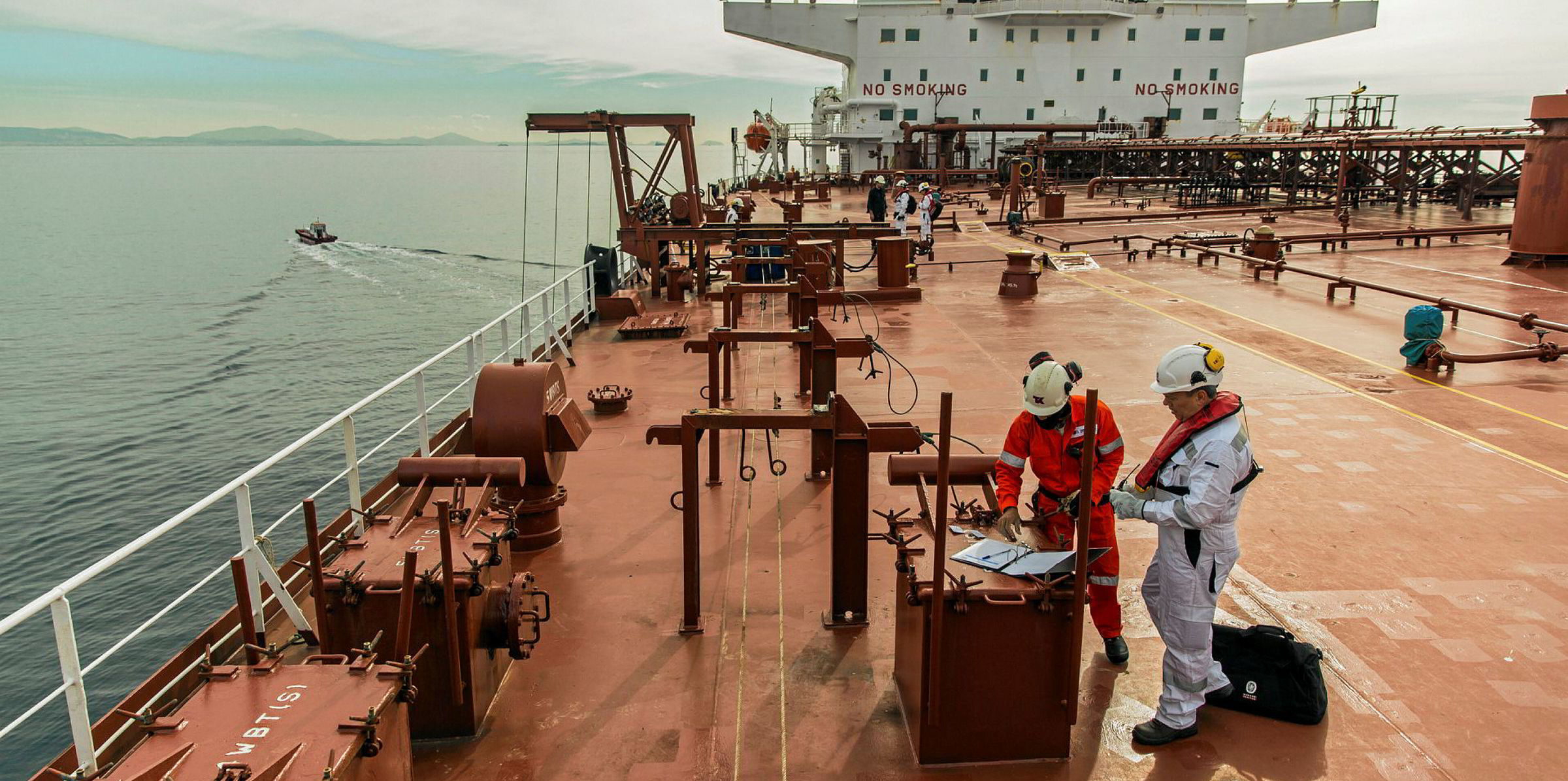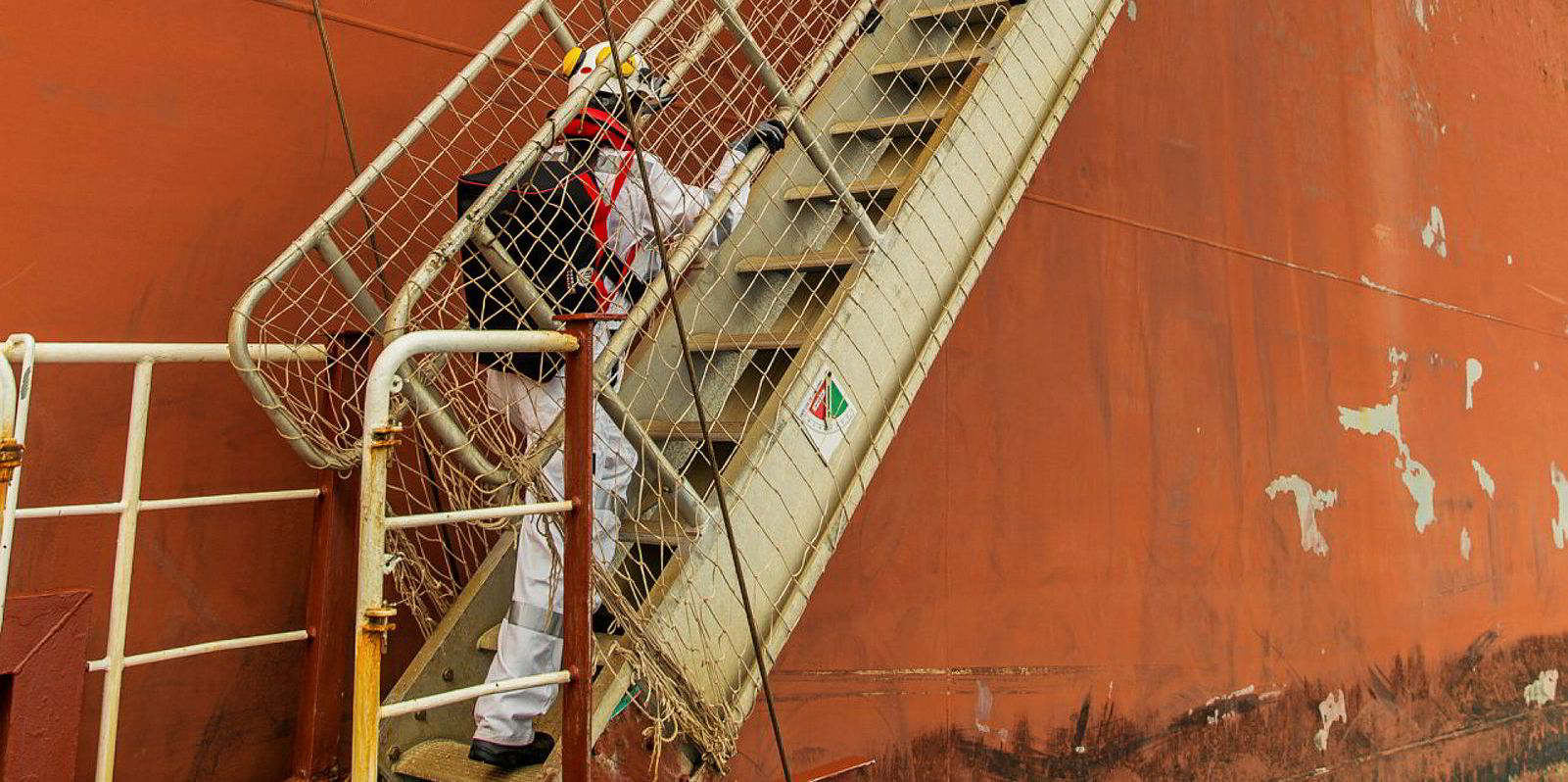Shipowners and operators can choose to have a Ship Inspection Report (SIRE) inspection carried out remotely to guard against the spread of Covid-19 under temporary measures introduced by the Oil Companies International Marine Forum (OCIMF).
Remote inspections will require vessel operators to complete a detailed questionnaire and upload a series of documents and certificates to a dedicated online repository.
This information will be reviewed by an OCIMF inspector who will be required to complete a further questionnaire based on the vessel operator’s information and further detail from the ship by accessed by phone and video.
OCIMF said the information supplied will include certificates, documents and photograph files.
“We have successfully trialled the remote inspection regime and conducted a robust management of change process with good results and we are now ready to roll it out, on a temporary basis, across the OCIMF community,” OCIMF managing director Rob Drysdale said.
OCIMF, whose oil company members have ownership of the SIRE reports for vessels, described remote inspections as “an option” and “an additional tool” for the SIRE programme.
Drysdale said: “In some circumstances, Covid-19 is limiting the ability of an OCIMF inspector to be physically present on board a vessel to carry out a vessel inspection. To ensure our inspection regimes continue, and without unduly exposing the inspector or the vessel’s crew to the risk of a Covid-19 infection, we are now able to offer remote inspections.”
"Acceptance of the remote inspection by all submitting and programme recipient companies cannot be guaranteed."
Rob Drysdale
But he stressed that remote inspections are “a temporary additional resource when physical inspections are not feasible.”
“They are not a replacement for our existing programme of physical inspections," he said.
The MD said the choice of opting for a remote inspection lies with the company that is commissioning the inspection.
He added that it is up to individual SIRE programme recipient companies – which largely consist of the energy major charterers - to decide on a case-by-case basis whether or not to accept these.
“Therefore, acceptance of the remote inspection by all submitting and programme recipient companies cannot be guaranteed,” Drysdale said.
OCIMF said in April that it had set up a task force to consider remote ship vetting as the pandemic took hold global limiting global travel.
The body also increased the availability of its ship vetting reports from 12 months to 18 months and encouraged members to defer vetting inspections as ships’ SIRE certificates expired and owners became concerned about charterers' acceptance of their vessels.
In this latest advisory OCIMF has included guidance on the factors to be considered when deciding on the use of remote over a physical vessel inspection.
These included the risk of transmitting Covid-19 and the existence of the virus onboard a vessel.
A ship’s location and any local travel restrictions for that area along with the vessel’s previous schedule should also be examined.
Owners may also want to consider the possibility of conducting a physical inspection later and the possibility that valid inspection reports may be available.
Drysdale said: “Like all our colleagues in the oil and gas and maritime industries, we must adapt to the changing coronavirus environment and introduce new ways of working that protect our people.” But he added that the industry also needs to maintain high safety and operational processes insisted on by OCIMF members.







